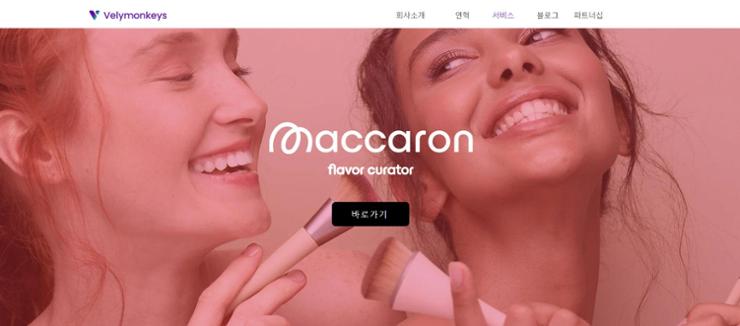Link to the original article :
https://www.koreatimes.co.kr/www/tech/2024/09/419_381967.html?na
K-beauty firms capture interest of consumers in South Asian countryBy Ko Dong-hwanKorean beauty companies are ramping up efforts in India, where an increasing segment of the 1.45 billion-strong population is expressing interest in cosmetics and anti-aging products, according to industry officials, Friday.
From startups to major global firms, companies are either preparing to enter or have already established operations in India. Their ventures have garnered the attention of the Indian government, which seeks to expand the domestic beauty market with the support of Korean firms.
Among the early entrants is Velymonkeys, a startup founded in 2019, focused on distributing Korean cosmetic products to local consumers in India. The company has established a local subsidiary that oversees distribution through its online platform, Maccaron.
CEO Yoo Seung-wan emphasized that for foreign companies to operate in India, establishing a local subsidiary to handle cross-border customs and obtain sanitation approvals from local authorities is crucial. Merely having a supply chain is not enough to successfully enter the Indian market, he added.
Maccaron currently offers around 30,000 Korean beauty products from 1,000 brands, including popular names like COSRX and Beauty of Joseon, for its 600,000 members, affectionately known as "Maccaronies." Velymonkeys has also successfully introduced its products to Nykaa, one of India’s largest e-commerce platforms.
Velymonkeys began generating revenues in India in October 2022. Its sales surged from 3.2 billion won ($2.4 million) in 2022 to 11 billion won in 2023, with earnings reaching 1.1 billion won.
The company’s rising sales reflect the booming beauty market in India. According to the Korea Trade-Investment Promotion Agency, the Indian beauty market saw substantial growth following the COVID-19 pandemic and is projected to expand by 10 percent annually from 2022 to 2027 — more than twice the global average growth rate for the beauty sector.
Industry experts note that Indian consumers are increasingly drawn to the natural ingredients featured in many Korean beauty products, such as rice water, ginseng, and licorice. According to market analyst Mordor Intelligence, the K-beauty market in India is expected to grow annually by 9.4 percent from 2021 to 2026.
In August, Nine Tails, another Korean beauty company, signed a memorandum of understanding (MOU) with the Indian government in Seoul to facilitate its market expansion into India. The agreement was witnessed by Telangana State Chief Minister Anumula Revanth Reddy, Indian Minister of Commerce and Industry Shri Piyush Goyal, and representatives from local entertainment companies in India.
Nine Tails CEO Ki Seo-chul said the MOU will enable the company to further develop and introduce new products, including boosters, serums, ampoules, and eye care items, while enhancing their promotion in the Indian market.
The company has already garnered recognition in Spain through Cosmopolitan magazine in January. It is currently showcasing its products at the Tokyo Gift Show 2024 and the Beauty Fair 2024 in Brazil, both taking place this month.
Amorepacific, a major conglomerate renowned for global brands such as Hera, Laneige, and Aestura, has also identified India as a key target market for its beauty products.
The announcement was made last month as part of the company's strategy to further diversify its global market presence. Sales in China have dropped by 44 percent in the second quarter of this year compared to the previous year, while sales in Western countries surged by 82.7 percent over the same period. Additionally, sales in Japan and Southeast Asian nations have increased by 24.8 percent this year.
A company official highlighted India’s youthful demographic, with 70 percent of its population aged 35 or younger, and described the country as a vast, emerging market with significant potential for the company’s growth.
